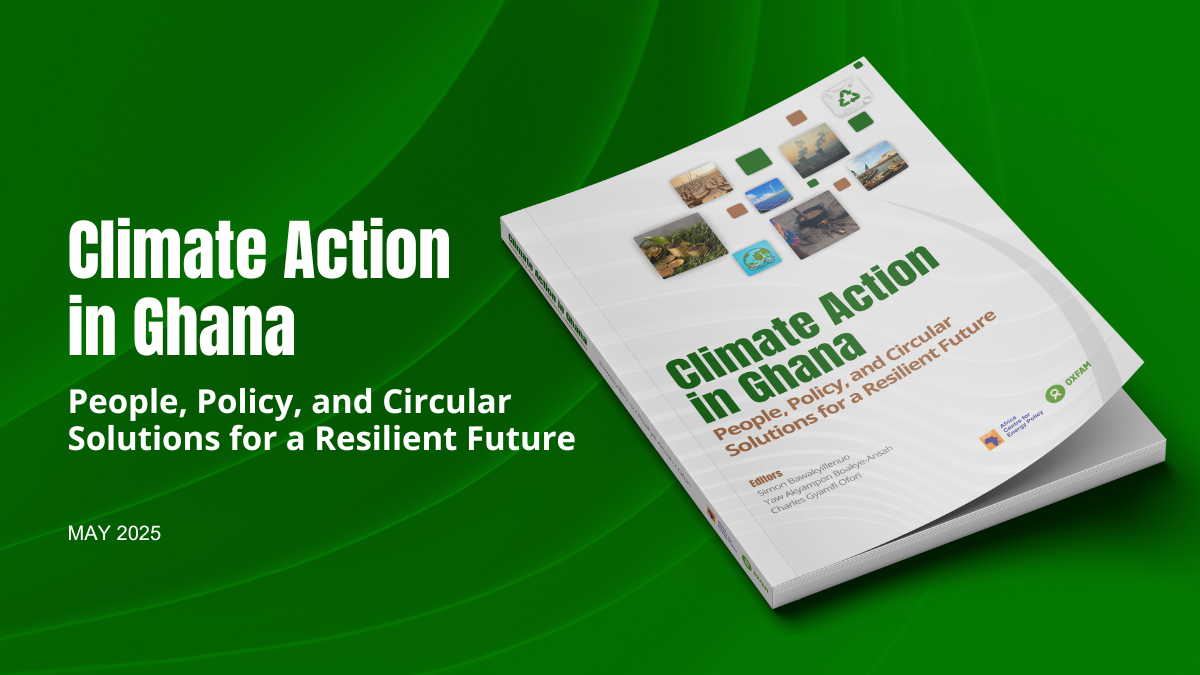

This publication marks a significant milestone in our organisation’s journey to deepen the discourse on climate action in Ghana and contribute meaningfully to the global climate agenda through locally grounded perspectives.
At ACEP, we recognise that addressing the climate crisis requires more than high-level commitments; it demands inclusive, evidence-based, and context-specific solutions. This book is born out of our commitment to galvanise multi-stakeholder efforts by drawing together research evidence and practical insights from academia, civil society, and industry professionals. Our goal is to bridge the gap between knowledge and action, creating a platform that promotes collaboration, learning, and shared responsibility.
A compelling feature of this volume is its deliberate blend of scientific analysis and traditional ecological knowledge. This fusion reflects our belief that climate solutions must be both innovative and rooted in the lived experiences of communities. Indigenous wisdom, passed down through generations, often offers time-tested approaches to environmental stewardship that are increasingly relevant in today’s climate conversations.
Beyond this, the book highlights the transformative potential of technology and data-driven approaches in building climate resilience. From digital tools that enhance climate monitoring to innovations in clean energy and mobility, these contributions explore how Ghana can harness modern systems to address urgent environmental challenges. The role of policy is also foregrounded, with chapters offering thoughtful discussions on governance structures, regulatory frameworks, and strategic interventions to drive sustainable outcomes.
Financing climate action is a recurring theme throughout the book, and rightly so. Without robust, targeted, and sustained financing, many promising interventions will remain unrealised. The chapters underscore the importance of mobilising both public and private capital, while proposing models that can unlock greater investment for climate resilience and low-carbon development.
Each chapter is designed to serve a broad audience including academics, policymakers, and industry actors alike. More importantly, the contributions are not only analytical but action-oriented. They each provide clear recommendations, outlining the roles and responsibilities of various stakeholders in Ghana’s climate transition.
Ultimately, this book is a call to action. Climate change is a shared challenge that requires our collective commitment and coordinated effort. We hope that this publication will inspire renewed urgency, foster collaboration, and serve as a valuable resource for anyone committed to building a sustainable and climate-resilient Ghana.
Let us act, together.

